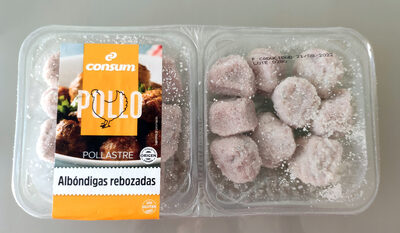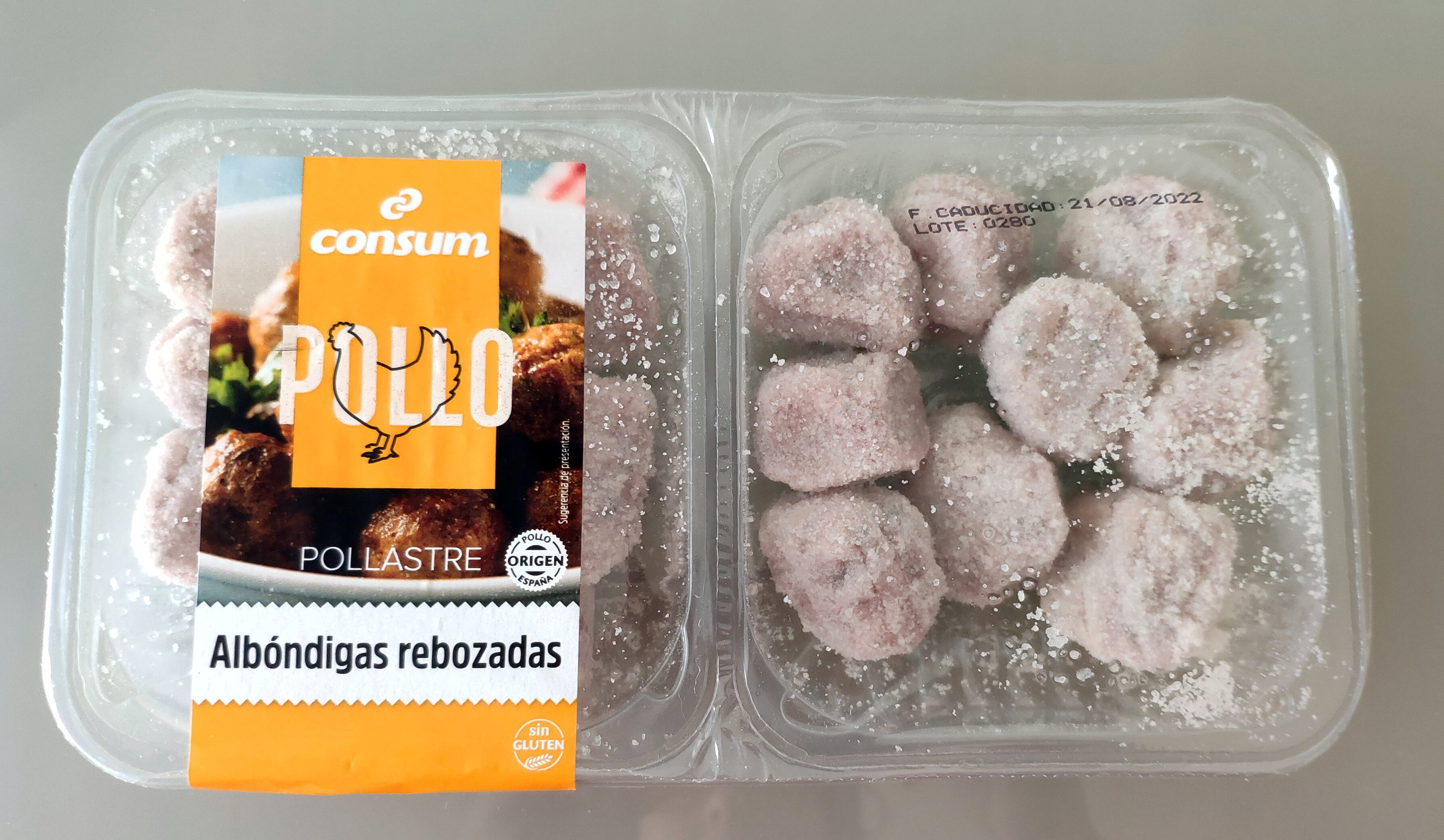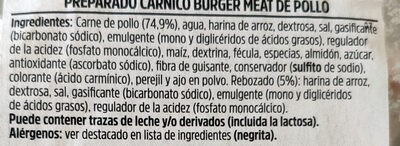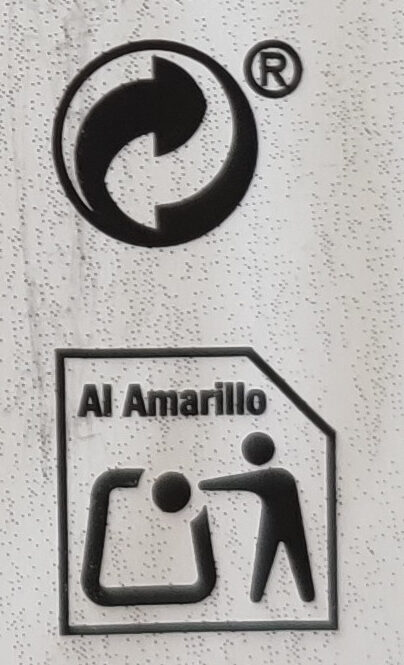Albondigas rebozadas - Consum - 350 g
Barcode: 8414807553348 (EAN / EAN-13)
Common name: Preparado cárnico burger meat de pollo
Quantity: 350 g
Packaging:
Green dot
Brands: Consum
Categories: Meats and their products, Meat preparations, Meats, Meat balls
Labels, certifications, awards:
No gluten, Green Dot
Origin of ingredients: Spain
Traceability code: ES 10.026224/CS CE
Stores: Consum
Countries where sold: Spain
Matching with your preferences
Report a problem
Data sources
Product added on by kiliweb
Last edit of product page on by alia.
Product page also edited by openfoodfacts-contributors, roboto-app, yuka.sY2b0xO6T85zoF3NwEKvlhRAAsjjrwmaBTnVgm-bxvagIIDxavJv_q71a6o.













